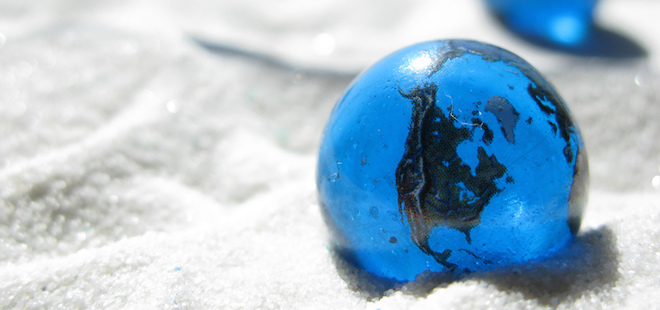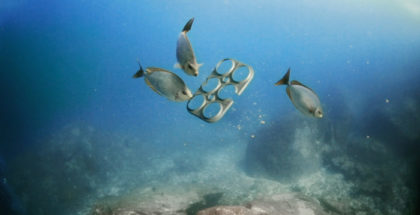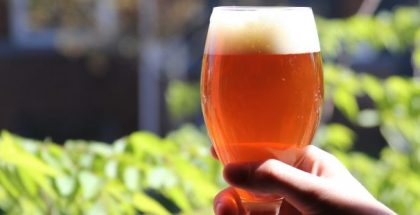10 Creative Ways Craft Beer Is Improving Its Environmental Friendliness
Happy Earth Day! Founded in 1970 by Wisconsin Senator Gaylord Nelson, the movement has spread internationally. Earth Day was first used as a message to advocate protecting the environment as 20 million people participated in rallies that resulted in the formation of the United States Environmental Protection Agency. Today, Earth Day conducts international initiatives like in 2012 when one million trees were planted across the planet. In addition advocation for the plant mostly focuses on climate change. Everyone is encouraged today to do something nice for the Earth and make a difference.
For breweries, the amount of resources needed to make delicious beer is quite significant. As an example, it takes on average five barrels of water to make one barrel of beer. So what are breweries doing to decrease their ecological footprint and help the environment? Examples for years of sustainable initiatives by breweries have come from Sierra Nevada and New Belgium. Below we identify ten creative solutions by breweries around the world. The ideas range in size, which is necessary as not all breweries can complete the major initiatives that some of the sustainability leaders are doing today.
1) Tap Handles | Twisted Pine Brewing Co (Boulder, CO)
Since the mid-1990s, pine beetles have killed 3.5 million acres of trees across Colorado. This began when Colorado began facing higher temperatures and droughts which caused the pine trees to stress, making them more susceptible to pine beetles. The population peaked in 2008 and has since decreased, mostly because the pine beetles have eaten out all the stressed trees. Experts say it will take 80 to 100 years for the forests to look like what they did prior to the destruction. For some breweries like Twisted Pine Brewing Co., the wood from pine beetle kill is used to make tap handles. Other breweries have repurpose unused or antique objects for tap handles like Living The Dream Brewing Co. does with old ski poles. Both of these are quite fun. They add to each breweries brand, connect to their community (Colorado), and do not require new resources.
2) Bottles | Bayern Brewing (Missoula, MT)
More than 28 billion glass bottles and jars end up in landfills every year. Only 41 percent of beer and soda bottles were recycled in 2012. Well, Bayern Brewing has a unique “Ecopack” that limits the amount of new bottles needed. With the Bayern Ecopack, people pay a deposit to get a special Ecopack box. People then use the box to bring in bottles, including bottles from other breweries, that meet the requirements and Bayern Brewing and will give a five cent refund per bottle. Other breweries, such as Crabtree Brewing in Greeley, Colorado, also have bottle return programs for their own bottles and will give out free pints for doing so.
FYI, 67 billion cans of beer are consumed each year. Aluminum cans are made up of 68 percent of recycled material. Fifty-eight percent of aluminum cans are recycled each year.
3) Water Usage | Big Sky Brewing (Missoula, MT)
Moving a bit west on I-90 is Big Sky Brewing. In 2010, the brewery signed an agreement to purchase Water Restoration Certificates from the Bonneville Environmental Foundation. Each Water Restoration Certificate preserves 1,000 gallons, which big Sky used to help restore water flow in the Prickly Pear Creek. Over the following three-years, Big Sky purchased enough certificates to help restore over 10 million gallons of water. Water Restoration Certificates provide “water users an economic incentive to devise new water management solutions that restore water to critically dewatered ecosystems.” Programs include water conservation, water management, water leasing, and permanent transfers. The Bonneville Environmental Foundation also includes steps to decrease any business’ water footprint.
4) Disease | Heineken (Amsterdam, Netherlands)
Did you know that consuming beer attracts mosquitoes to you? This may sound like a small problem for a camping trip, but in many other parts of the world malaria is a major problem. To combat mosquitoes carrying malaria, Heineken has created a “Mozzie Box.” Heineken has a popular brand, SP Lager, that is popular in Papua New Guinea. Malaria in Papua New Guinea is a major issue. For most residents, they drink in the evening outside and use the Mozzie Boxes as fuel for their fires. To help prevent mosquitoes carrying malaria from being near the group, Heineken infuses the Mozzie Boxes with eucalyptus, a mosquito pesticide. When the box is burned, it releases the eucalyptus and helps keep mosquitoes away. Although this does not fully protect the people nearby, it does help.
5) Coasters | Deschutes Brewery (Bend, OR)
Here is an easy, creative idea. Deschutes offers 5” coasters made from recycled rubber that offers the several environmental benefits, as stated on their site: saves approximately 2 ounces of carbon dioxide from being released into the atmosphere; keeps 1.6 ounces of rubber out of the landfill; and prevents 1.6 ounces of crude oil from being consumed.
6) Spent Grain | Great Raft Brewing (Shreveport, LA)
Breweries are finding new ways to use their spent grains, which are 85 percent of a brewery’s byproduct. Most breweries give their spent grain to local farmers for animal feed (unless the FDA changes its mind). Some breweries have even turn spent grain into dog treats for the four-legged taproom companion. What we like that Great Raft Brewing does is it partners with a local bakery to sell the treats and donates all profits to a local animal shelter. Other breweries use the spent grains in food recipes like Oak Park Brewing Company does with crackers, Coors transforms it into ethanol fuel that can be put into cars, Sierra Nevada uses it for its HotRot composting, or…
7) Energy Usage | Alaskan Brewing Company (Juneau, AK)
With the major issue of no livestock in the Juneau area, Alaskan Brewing was having to ship its spent grain to the continental United States. Then in 2011, they created a steam boiler fueled by its spent grain. It was fully implemented in 2012 and expected to reduce their oil usage by 65 percent.
8) Climate Change | Brewery Climate Declaration (19 Breweries)
Just as Earth Day was founded, advocating for the Earth and making a difference is what this collaboration is about. 19 breweries from around the world have signed on to the Brewery Climate Declaration and will work together to lead the craft beer industry to help reduce air pollution. The breweries believe they can do this in the following ways: measuring greenhouse gas emissions; using renewable energy; recycling steam; capturing methane; cutting transportation emissions; and becoming LEED certified.
In Development
Just as we are looking at what breweries are doing now, here are two other creative ideas that have been publicized:
9) Bottles | Carlsberg (Copenhagen, Denmark)
The European brewer believes it can have a wood-fiber bottle in three years that would be fully biodegradable. A prototype has been created but they are working with several partners to get the right material mix as not all parts, such as the cap, will need to be made from other biodegradable materials besides wood-fiber.
10) Water Usage | Oregon Brew Crew (Oregon)
Although not a craft brewery, this home brew club is attempting to use wastewater to make beer. Going through an approvals process right now, recycled wastewater is currently used in Oregon for other activities such as irrigation. Oregon law currently prevents anyone from drinking purified wastewater. If this were to pass, brewers see this an alternative when droughts occur.
If you know of any other ways craft beer is improving its environmental friendliness, please tell us in the comments below.
Tell us what are you going to do to make a difference on Earth Day. If you are looking for a project to help with, you can find projects here.







Submit a Comment